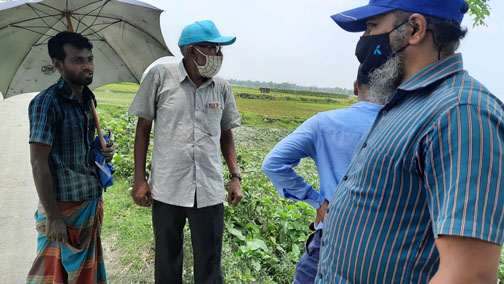Bangladesh is on track to achieve the self-sufficiency in food even the population of the country is more than 175 million right now. In the history of 1974 famine, we found that a lot of people got died because of food scarcity even though that time the population was only 75 million. We are able to increase food production to reduce insufficiency, but to achieve the high target, our agriculture system has converted from traditional cultivation to chemical fertilizer and pesticide-based agriculture. The indiscriminate use of pesticide for vegetable cultivation is headache for the consumers. According to the pesticide use statistics from the Bangladesh pesticide associations, the use of pesticides has grown four-fold in the last 10 years which has created an alarming situation in the country. Food items have been inedible because of the excessive use of chemical fertilizers and pesticides in all agricultural items. On the other hand, to preserve harvested agriculture products and to protect from spoiling, the dishonest traders are using different types of health hazardous chemical and preservatives. In case of the fruits, preservatives are being used to make them luxurious for a longer time. Not only that, harmful chemicals are also using to ripen immature raw fruits. All these chemicals are very harmful for human body. People often suffer from various complex diseases due to consuming this sort of toxic food. In general, due to harmful practices of pesticides, human health is now at a great risk.
Considering the situation, PUP have been working jointly with MCC Bangladesh to educate farmers about how to cultivate crops and vegetables by using natural composts and pest management. We formed small farmers groups and arranging courtyard meeting where farmers will gain knowledge about the importance and necessity of the pesticide free vegetables production. We have been encouraging them to practice for safe agriculture, like – pesticide free vegetable cultivation, Integrated Pest Management (IPM) and organic agriculture.


